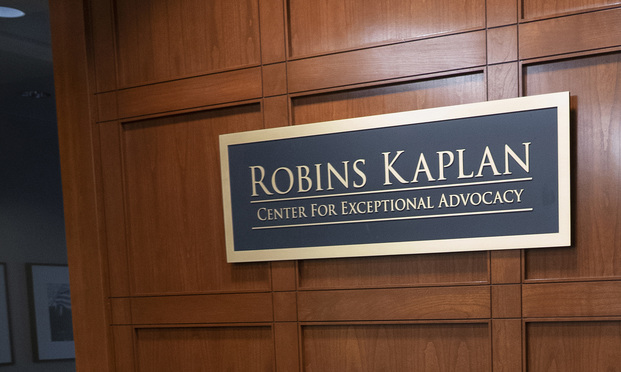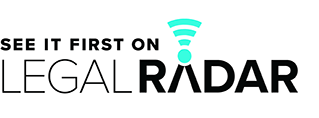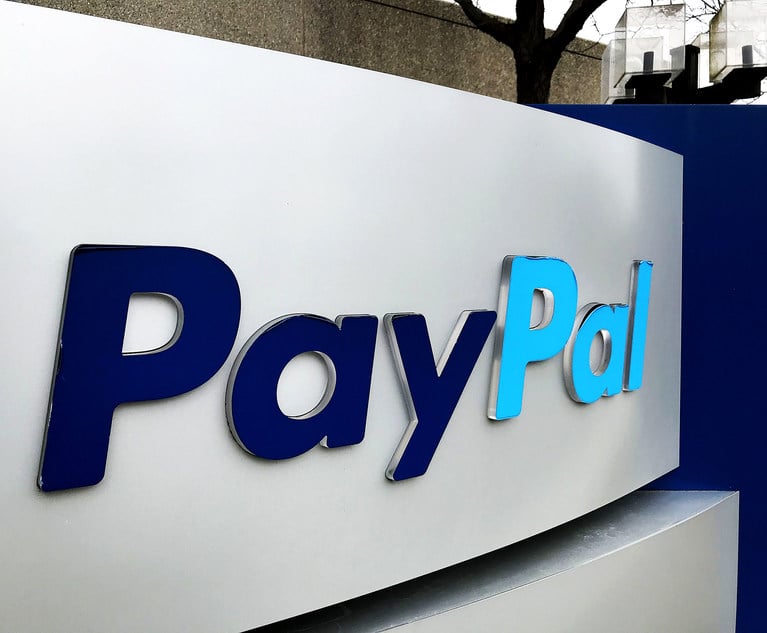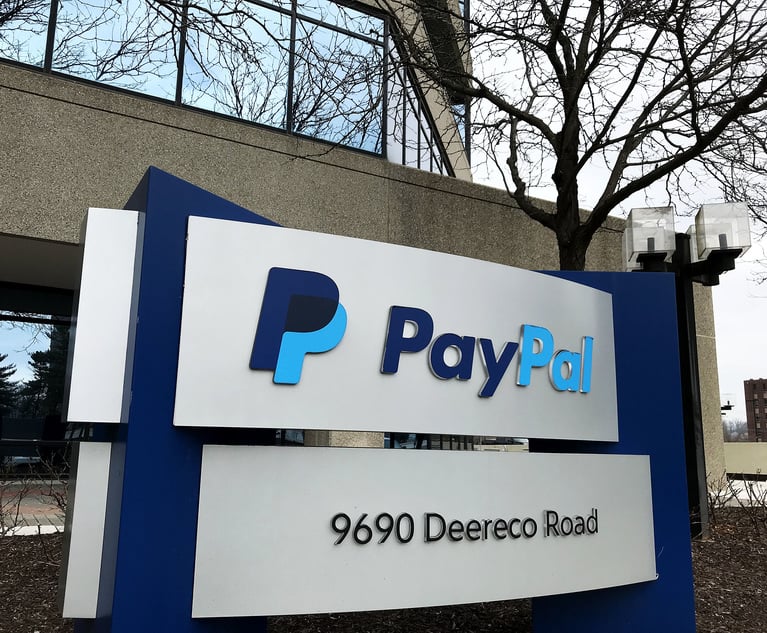Fintech Company Plaid Hit With Privacy Suit Over Database of Transactional Data
"If consumers don't know that Plaid exists, they certainly cannot consent to Plaid taking their data," wrote attorneys from Robins Kaplan in a lawsuit alleging that Plaid Inc. illegally tracks millions of consumers' financial data.
June 25, 2020 at 10:18 PM
5 minute read
 Robins Kaplan.
Robins Kaplan.
Correction: An earlier version of this story characterized Visa's pending acquisition of Plaid as final.
Venmo and Cash App users are suing a financial technology company for allegedly creating one of the largest databases of transactional data in history "through a decade-long campaign of lies and deceit," according to a lawsuit in California federal court.
In a class action complaint filed in the U.S. District Court for the Northern District of California Thursday, attorneys from Robins Kaplan assert that Plaid Inc., a service that connects payment apps to banks, has violated the privacy rights of millions of consumers.
 "Imagine there is a company that knows every dollar you deposit or withdraw, every dollar you charge or pay to your credit card, and every dollar you put away for retirement, within hours after you make the transaction," wrote a team of Robbins Kaplan attorneys led by Michael Ram in Mountain View, California. "Imagine that, as far as you know, you never provided your username and password to this company or otherwise authorized it to access your online accounts. Imagine you never heard of this company at all. That company exists. It is called Plaid. And this is exactly what it does."
"Imagine there is a company that knows every dollar you deposit or withdraw, every dollar you charge or pay to your credit card, and every dollar you put away for retirement, within hours after you make the transaction," wrote a team of Robbins Kaplan attorneys led by Michael Ram in Mountain View, California. "Imagine that, as far as you know, you never provided your username and password to this company or otherwise authorized it to access your online accounts. Imagine you never heard of this company at all. That company exists. It is called Plaid. And this is exactly what it does."
Plaid, which Visa announced plans to acquire in January, said in an email statement that the lawsuit is baseless and the company plans to vigorously defend itself.
"Plaid does not sell and has never sold consumers' personal information or data," said a spokesperson for Plaid. "Consumer data is obtained and used with consumer consent. We believe strongly that consumers should have permission-based access to and control over their financial data, and embody these principles in our practices."
The complaint contends that, after connecting consumers' payment apps to their banks, Plaid stores their credentials and uses them to collect five years worth of transactional data and continues to track users' data going forward. Plaintiffs claim that the data-gathering scheme is not incidental to the company's business model, and in fact, it is Plaid's "very purpose."
"Plaid's scheme is a bait and switch—a sophisticated imitation of the logos and branding of major financial institutions, designed to fool users into thinking that they are interacting directly with their banks when in fact they are interacting only with Plaid," the lawsuit asserts. "After Plaid has gathered reams of a user's sensitive personal data, Plaid aggregates the data with that of millions of other users, chops it up,and sells it to the highest bidder."
In addition to damages, the payment app users are asking the court to order Plaid to stop illegally downloading consumers' financial information and disgorge users credentials and profits acquired from its data gathering.
The complaint brings 10 causes of action against Plaid, including common law invasion of privacy, violation of the Stored Communications Act and negligence.
A key tool in its ability to deceptively get hold of the credentials, the lawyers wrote, is the company's version of OAuth, the tech industry's standard verification process that asks users to give permission for a platform to funnel information to another website or app without storing login data. Plaid's version, "Managed OAuth," does not use a separate dialogue box disclosing the permissions and it does store usernames and passwords, according to the complaint.
"Plaid achieves this fraud by erecting a sophisticated edifice of deceit to trick users into thinking that they are logging into their financial institutions, when in fact they are turning over their credentials to Plaid," plaintiffs allege in the complaint.
Payment app users also argue that they suffered economic damages from loss of control of valuable information. Visa announced a deal to acquire the fintech company in January for $5.3 billion, "based in no small part on the universe of consumers that Plaid has accumulated," the suit states.
Lawyers for the plaintiff did not immediately respond to a request for comment. The complaint called into question any consent that Plaid received from users, since most consumers do not realize Plaid is involved in their use of the finance apps, they allege.
"If consumers don't know that Plaid exists, they certainly cannot consent to Plaid taking their data," they wrote.
 Sign up for Law.com's Legal Radar to keep up with the latest news and lawsuits in a free, personalized news feed. Track class actions and who's getting the work by industry, practice area, law firm, company and region.
Sign up for Law.com's Legal Radar to keep up with the latest news and lawsuits in a free, personalized news feed. Track class actions and who's getting the work by industry, practice area, law firm, company and region.
This content has been archived. It is available through our partners, LexisNexis® and Bloomberg Law.
To view this content, please continue to their sites.
Not a Lexis Subscriber?
Subscribe Now
Not a Bloomberg Law Subscriber?
Subscribe Now
NOT FOR REPRINT
© 2025 ALM Global, LLC, All Rights Reserved. Request academic re-use from www.copyright.com. All other uses, submit a request to [email protected]. For more information visit Asset & Logo Licensing.
You Might Like
View All
'It's Not Going to Be Pretty': PayPal, Capital One Face Novel Class Actions Over 'Poaching' Commissions Owed Influencers

'Biggest Influencer Scam of All Time'?: PayPal Accused of Poaching Commissions Via Its 'Honey' Browser Extension


Law Firms Mentioned
Trending Stories
Who Got The Work
J. Brugh Lower of Gibbons has entered an appearance for industrial equipment supplier Devco Corporation in a pending trademark infringement lawsuit. The suit, accusing the defendant of selling knock-off Graco products, was filed Dec. 18 in New Jersey District Court by Rivkin Radler on behalf of Graco Inc. and Graco Minnesota. The case, assigned to U.S. District Judge Zahid N. Quraishi, is 3:24-cv-11294, Graco Inc. et al v. Devco Corporation.
Who Got The Work
Rebecca Maller-Stein and Kent A. Yalowitz of Arnold & Porter Kaye Scholer have entered their appearances for Hanaco Venture Capital and its executives, Lior Prosor and David Frankel, in a pending securities lawsuit. The action, filed on Dec. 24 in New York Southern District Court by Zell, Aron & Co. on behalf of Goldeneye Advisors, accuses the defendants of negligently and fraudulently managing the plaintiff's $1 million investment. The case, assigned to U.S. District Judge Vernon S. Broderick, is 1:24-cv-09918, Goldeneye Advisors, LLC v. Hanaco Venture Capital, Ltd. et al.
Who Got The Work
Attorneys from A&O Shearman has stepped in as defense counsel for Toronto-Dominion Bank and other defendants in a pending securities class action. The suit, filed Dec. 11 in New York Southern District Court by Bleichmar Fonti & Auld, accuses the defendants of concealing the bank's 'pervasive' deficiencies in regards to its compliance with the Bank Secrecy Act and the quality of its anti-money laundering controls. The case, assigned to U.S. District Judge Arun Subramanian, is 1:24-cv-09445, Gonzalez v. The Toronto-Dominion Bank et al.
Who Got The Work
Crown Castle International, a Pennsylvania company providing shared communications infrastructure, has turned to Luke D. Wolf of Gordon Rees Scully Mansukhani to fend off a pending breach-of-contract lawsuit. The court action, filed Nov. 25 in Michigan Eastern District Court by Hooper Hathaway PC on behalf of The Town Residences LLC, accuses Crown Castle of failing to transfer approximately $30,000 in utility payments from T-Mobile in breach of a roof-top lease and assignment agreement. The case, assigned to U.S. District Judge Susan K. Declercq, is 2:24-cv-13131, The Town Residences LLC v. T-Mobile US, Inc. et al.
Who Got The Work
Wilfred P. Coronato and Daniel M. Schwartz of McCarter & English have stepped in as defense counsel to Electrolux Home Products Inc. in a pending product liability lawsuit. The court action, filed Nov. 26 in New York Eastern District Court by Poulos Lopiccolo PC and Nagel Rice LLP on behalf of David Stern, alleges that the defendant's refrigerators’ drawers and shelving repeatedly break and fall apart within months after purchase. The case, assigned to U.S. District Judge Joan M. Azrack, is 2:24-cv-08204, Stern v. Electrolux Home Products, Inc.
Featured Firms
Law Offices of Gary Martin Hays & Associates, P.C.
(470) 294-1674
Law Offices of Mark E. Salomone
(857) 444-6468
Smith & Hassler
(713) 739-1250






